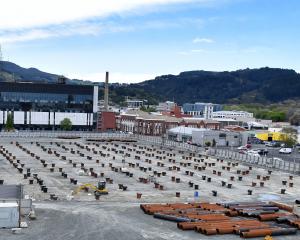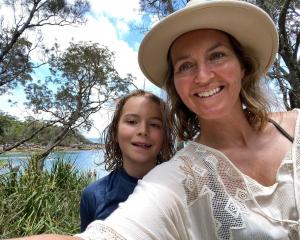
It is important that New Zealand take notice of Israel’s rapidly expanding illegal settlement activity in occupied East Jerusalem and the West Bank (The Occupied Territories: OPT), if it wishes to keep the hope of a "two-state" solution between Palestine and Israel alive. It should also take note of the recent International Court of Justice (ICJ) decision (July 19, 2014) which deems that Israel’s "continued presence in the OPT is unlawful", and that "Israel must cease immediately all new settlement activities, and evacuate all settlers from the OPT".
Successive New Zealand governments have expressed support for the two-state solution; however, we need to go back to 2015-16 to witness any effort towards this goal. After a period of diplomatic lobbying and manoeuvring among UN states, New Zealand’s bid to be appointed a non-permanent member of the United Nations Security Council in 2015-16, was successful.
New Zealand wanted to promote the interests of small island developing states, lobby against the veto power of the five permanent members, and progress the 1993 Oslo Accord’s "peace process" (the "two-state" solution) between Palestine and Israel. It was particularly successful in delivering on the third of its objectives.
In July 2015, in a statement to the security council, then minister of foreign affairs Murray McCully challenged the security council to "face up to its responsibilities, and show some political courage of its own" on the issue of resolving the protracted conflict between Palestine and Israel.
By the end of its period on the security council, New Zealand had co-sponsored Resolution 2334, which was approved by the council on December 23, 2016. It requires that the illegal transfer of Israeli citizens to the OPT "completely cease". It notes that the settlements have "no legal validity and constitutes a flagrant violation under international law."
This was an important moment, as the number of illegal settlers had grown to over 620,000 since Israel’s illegal occupation in 1967 and as New Zealand noted, this was a major obstacle to any future Palestinian state. That New Zealand shepherded the resolution through is remarkable, in a number of ways.
New Zealand came under significant diplomatic pressure from the Israeli Prime Minister, Benjamin Netanyahu, who reportedly told McCully that support for a UN resolution condemning Israeli settlement-building in the OPT would be viewed as a "declaration of war". However, New Zealand held its ground and refused to be bullied by the Israeli prime minister. Secondly, to place pressure on Israel to comply, the resolution contained a requirement that member states "distinguish in their relevant dealings, between the territory of the State of Israel; and the territories occupied since 1967" (i.e. the OPT).
Since the resolution was passed, however, Israel has continued to dramatically expand its settlements and other UN member states, including New Zealand, have failed to apply any pressure on Israel to do otherwise. So it is little wonder that Israel continues to expand its settler colonies.
If anything, the current rhetoric and actions by Israel are more extreme, giving support to the commonly held view that Israel’s intention is to fully occupy all of historic Palestine. In recent statements, the Israeli Minister of Finance, Bezalel Smotrich, an illegal settler himself, was quoted in the Los Angeles Times: "We came to settle the land, to build it, and to prevent its division and the establishment of a Palestinian state, God forbid."
In line with this rhetoric, Israeli authorities recently approved the appropriation of nearly five sqare miles of land in the Jordan Valley. Data from "Peace Now" (an Israeli NGO tracking settlement activity), indicated that this is the largest single appropriation of land approved since the 1993 Oslo Accord. Smotrich is also looking to move Israeli settlers to Gaza (after the genocide has run its course), and the possible occupation of areas in southern Lebanon.
With the recent International Court of Justice’s call that "all [UN] states are under an obligation to recognise the legal situation arising from the unlawful presence of the State of Israel in the OPT and not to render aid or assistance in maintaining the situation created by the continued presence of the State of Israel in the OPT, New Zealand cannot remain silent.
The hypocrisy of Prime Minister Christopher Luxon at the recent Nato meeting offering financial support to Ukraine, while failing to lift a finger for the desperate plight of Palestinians in Gaza, is quite staggering. When asked about his foreign policy experience, he commented: "I’ve lived and worked in Five Eyes countries — it’s where my career was built", thus locating New Zealand firmly within a Western security apparatus.
Once again, it is time for New Zealand to act in a principled fashion, like it did during its time on the security council in 2015-16. It must support the recent ICJ decision, and demand that Israel cease its illegal settler drive to annex what remains of the Palestinian homeland.
It must also demand an end to Israel’s genocide in Gaza. If we are really serious about a "two-state" solution, where Palestine can throw off the shackles of a 76-year occupation and exercise self-determination as a free people, we must apply real pressure now on Israel, before it is too late.
— John Hobbs is a doctoral student at the National Centre for Peace and Conflict Studies, University of Otago.











